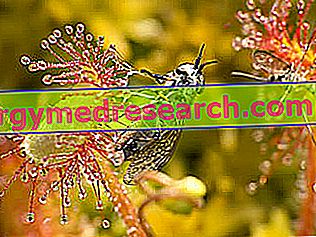TIENAM ® is a drug based on imipenem monohydrate with cilastatin
THERAPEUTIC GROUP: General antimicrobials for systemic use - Other beta-lactam, carbapenym antibiotics
IndicationsAction mechanismStudies and clinical effectiveness Usage and dosage instructionsWarnings Pregnancy and lactationInteractionsContraindicationsUndesirable effects
Indications TIENAM ® Imipenem
TIENAM ® is indicated in the treatment of bacterial infections sustained by micro-organisms sensitive to carbapenems, responsible for respiratory, gynecological, osteo-articular, dermatological, intra-abdominal and hematological diseases.
TIENAM ® has also been used successfully in the prophylaxis of surgical wound infections
Mechanism of action TIENAM ® Imipenem
TIENAM ® is an antibiotic particularly used in the clinical field due to the high bactericidal efficacy against Gram positive and Gram negative microorganisms, generally resistant to common penicillin therapy.
The therapeutic efficacy of TIENAM ® is due to its two active ingredients:
- Imipenem, a molecule derived from thienamycin, classified among the carbapenems, able to carry out its own bactericidal action through the inhibition of the transpeptidation reaction and the severe impairment of the structural characteristics of the bacterial wall. Characterized by a broad spectrum of action, imipenem has a natural resistance to the hydrolytic action of bacterial beta-lactamases, resulting instead in dihydropeptidases, enzymes expressed at the level of the proximal renal tubules responsible for hydrolysis and inactivation of the antibiotic.
- Cilastatin, an active ingredient capable of blocking the hydrolytic activity of dihydropeptidases, thus allowing the imipinem to reach the renal environment unchanged and carry out its own antibiotic activity also on the genito-urinary apparatus.
The high sensitivity of the two active ingredients to the gastric environment obliges the patient to have to take parenterally, both intramuscularly and intravenously, but still able to maintain an excellent bioavailability of both products.
Studies carried out and clinical efficacy
1 PRESCRIPTION PRESENCE OF IMIPINEM
Rev Chilena Infectol. 2006 Dec; 23 (4): 307-15. Epub 2006 Nov 23.
Interesting study that evaluates the prescriptive appropriateness of imipenem in a hospital environment, given the huge costs of this antibiotic therapy. The results show an inadequate use of this antibiotic, such as to considerably increase the costs associated with hospitalization of patients suffering from infectious diseases.
2 . MEROPENEM AND IMIPENEM IN THE TREATMENT OF SKIN INFECTIONS
Surg Infect (Larchmt). 2005 Fall; 6 (3): 269-82.
Interesting comparative study that evaluates the efficacy of meropenem and imipinem in the treatment of hospitalized patients with even severe skin infections.
This trial demonstrates the similar therapeutic activity of meropenem and imipinem, both characterized by a therapeutic efficacy higher than 80% and by the same safety profile.
3.AGRANULOCYTOSIS INDUCED BY IMIPENEM
Scand J Infect Dis. 2005; 37 (8): 619-620.
Case report reporting the appearance of one of the most feared side effects associated with carbapenem therapy. Indeed, in this patient treatment with imipenem-cilastatin led to the appearance of neutropenia and agranulocytosis with partial impairment of the medullary hematopoietic properties.
Method of use and dosage
TIENAM ®
Powder and solvent for solution for infusion of 500 mg of imipenem and 500 mg of cilastatin.
TIENAM ® is a drug reserved exclusively for hospital use, therefore the dosing schedule should be formulated by the competent doctor based on the physio-pathological characteristics of the patient, the severity of his clinical picture and the therapeutic goals to be achieved.
An adjustment of the dosage used should be provided for elderly patients or those suffering from kidney disease.
Warnings TIENAM ® Imipenem
The use of TIENAM ® should be supervised by hospital medical personnel and preceded by the isolation and characterization of the pathogen.
The use of carbapenems should in fact be realized only when the microorganism is sensitive, through antibiogram, to the antibiotic in question.
The inadequate use of antibiotics could in fact facilitate the appearance and spread of resistant strains capable of resisting antibiotic therapy, further aggravating the patient's clinical picture.
Particularly long antibiotic therapies based on imipenem, could profoundly alter the intestinal microflora, compromising the absorption of different active ingredients such as oral contraceptives, and facilitating the colonization of pathogenic microorganisms such as Clostridium difficile, the etiological agent of pseudo-membranous colitis.
TIENAM ® contains sodium therefore it should be taken with particular care in patients subjected to low-sodium dietary regimens.
PREGNANCY AND BREASTFEEDING
It would be preferable to avoid the use of TIENAM ® during pregnancy and in the subsequent period of lactation, given the total absence of studies able to characterize the safety profile for the imipinem fetal health.
Interactions
The patient receiving TIENAM ® should pay particular attention to the simultaneous intake of:
- Oral anticoagulants, given the increased risk of bleeding;
- Ganciclovir, for documented generalized seizures in patients receiving concomitant therapy;
- Valproic acid, for the reduction of blood concentrations of the same, able to compromise its therapeutic efficacy.
Contraindications TIENAM ® Imipenem
The use of TIENAM ® is contraindicated in patients who are hypersensitive to beta lactamines, penicillins, cilastatin and the related excipients.
Undesirable effects - Side effects
Different clinical trials and careful post-marketing monitoring have shown that treatment with carbapenem can lead to the appearance of side effects, especially in patients predisposed or following prolonged therapies.
Local reactions such as erythema, pain and swelling at the injection site rather than systemic reactions such as rash, pruritus, urticaria, erythema, bronchospasm, laryngospasm, hypotension and in more severe cases anaphylactic shock have often been observed in atopic patients or with previous history of hypersensitivity to drugs.
More commonly, nausea, diarrhea, vomiting and abdominal pain, hypertransaminasemia, hyperbilirubinemia, oliguria, anuria and urinary abnormalities following the intake of TIENAM ® have been described.
Note
TIENAM ® is a drug for hospital use only.



